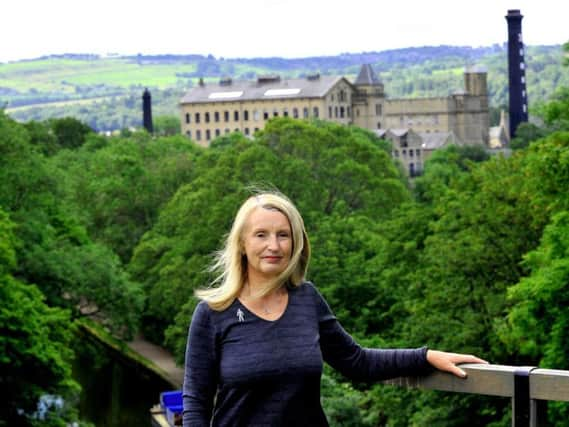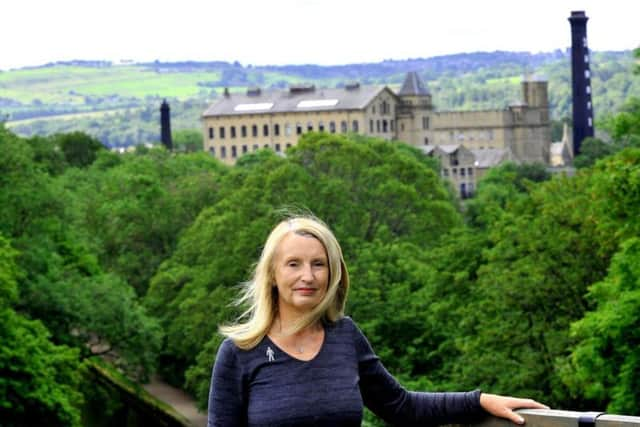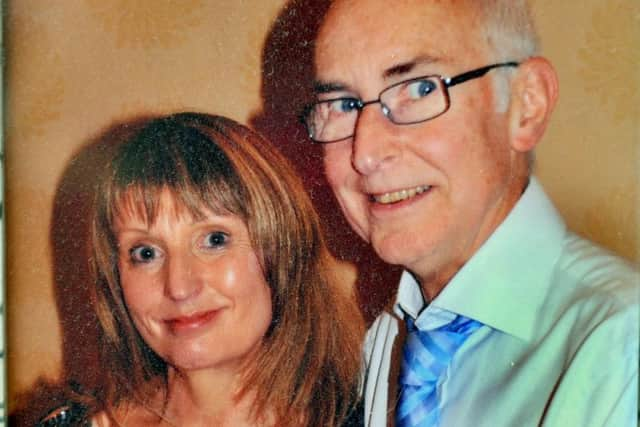Widow's call to talk about prostate cancer ahead of Leeds' March for Men


Now his widow Janet Daykin is preparing her own walk - to raise awareness of the cancer which killed him at the age of 65.
Mrs Daykin, 65, started working with other wives and partners affected by the disease after his death, and next Saturday, on June 29, she will join hundreds at the March for Men at Leeds’ Roundhay Park - one of ten events around the country.
Advertisement
Hide AdAdvertisement
Hide Ad

The disease affects one in eight men, and is one of the country’s biggest killers. In Leeds there are 4,178 men who are living with it or have received treatment for it, and 325,000 in England.
Yet despite this, says Mrs Daykin nearly a decade after her husband’s death, there is still a fear of talking about illness and dying, in particular among men of a certain age. Society must be prepared to open up about such difficult discussions, she says, about the risk factors and symptoms, and what to look out for.
Only then, she says, can diagnosis be prevented from becoming a death sentence.
Valentines' gesture


Mrs Daykin recalls her husband’s walk for that Valentine’s meal. By then, he had been reliant on the support of sticks or a wheelchair. But steadfast, he had trained every day, and built up the strength.
Advertisement
Hide AdAdvertisement
Hide AdIt was a short walk to the hotel near their home in Bingley, West Yorkshire. But to the couple it had meant the world because weeks later, just a few months after his diagnosis, Mr Batty died.
“Mike was diagnosed completely out of the blue,” said Mrs Daykin. “People didn’t talk about it, which made it a very lonely place.
“As a society, we shy away from talking about death. Afterwards, people didn’t know what to say, so they didn’t say anything.
“It’s the English way - people don’t want to upset you. We’ve got to get beyond that.
Advertisement
Hide AdAdvertisement
Hide Ad“The next generation will be so much more open to talking about it. In the meantime, if we don’t do something, this will be the biggest cancer killer by 2030.”
A second chance
The couple had met later in life, and while they had been together nearly 19 years when Mr Batty died in 2010, they were married for only four.
Mrs Daykin smiles as she talks of the summer evenings they shared, walking along the canal near their home, and glasses of wine at Bingley Locks to escape the chaos of home renovations.
Opening their wedding album, she laughs out loud. The couple had planned a low key wedding, but the Sri Lankan hotel they chose had been quite insistent on traditional staff dress.
Advertisement
Hide AdAdvertisement
Hide AdFor both of them, it had been a second marriage, a second chance.
“I’m sure we got good medical care, I’m sure things couldn’t have been any different. It would have been better not to have seen such a lonely and confusing time. It’s important sometimes, just to know that someone has been in the same situation.
"Some people talk about it a lot. Some plan their funerals. We dealt with it one day at a time. We need to talk, and we need to recognise the risk factors, so that we are looking at a cure rather than a death sentence. Life is a privilege. We have to remember that every day.”
Prostate Cancer UK March for Men
Families will walk in solidarity at next Saturday's March for Men, paying tribute to those they’ve lost and raising funds for research.
Advertisement
Hide AdAdvertisement
Hide AdAmong those marching are former Emmerdale star Gemma Oaten, who nearly lost her father Dennis to prostate cancer.
Charity chief executive Angela Culhane said: “We stand with men and for men: when diagnosis isn’t good enough, to fund research breakthroughs to provide better treatments, to campaign for better care, and with direct help through our support services.
“The fight against prostate cancer, a disease that kills one man every 45 minutes, is a purpose worth uniting for, and we want to continue making strides to combat this disease.”
Bramhope survivor to join walk
Glyn Jones will be taking part with his family and friends for the third time this year, having been diagnosed with prostate cancer in March 2015.
Advertisement
Hide AdAdvertisement
Hide AdRetired Mr Jones, aged 62, from Bramhope, said: “I can’t wait to get marching again this year. I’ve seen the event grow from the first one in 2017 and it keeps getting better.
“It’s such a special event for me, having been treated for prostate cancer, and a time to spend with my family and friends. It’s also a time to remember and celebrate those men who have sadly lost their lives to this disease.
"I had a team of 25 or so people last year, so I’m hoping to bring even more to the event this year! I really encourage anyone to sign up and come along to March for Men with us. There is a real sense of support and community as you take part.”
Prostate Cancer: the facts
Most men with early prostate cancer don’t have any signs or symptoms.
Advertisement
Hide AdAdvertisement
Hide AdBut there are some things that may mean you’re more likely to get it.
Charity Prostate Cancer UK advises that even if you don’t have any of the symptoms, to speak to your GP about prostate cancer if: you are aged 50 or over your father or brother has had prostate cancer, you are black.
There are ten March for Men walks all over the country, or choose a route from 2km to 26 miles and walk with family, friends or colleagues to help raise funds for Prostate Cancer UK, see www.prostatecanceruk.org